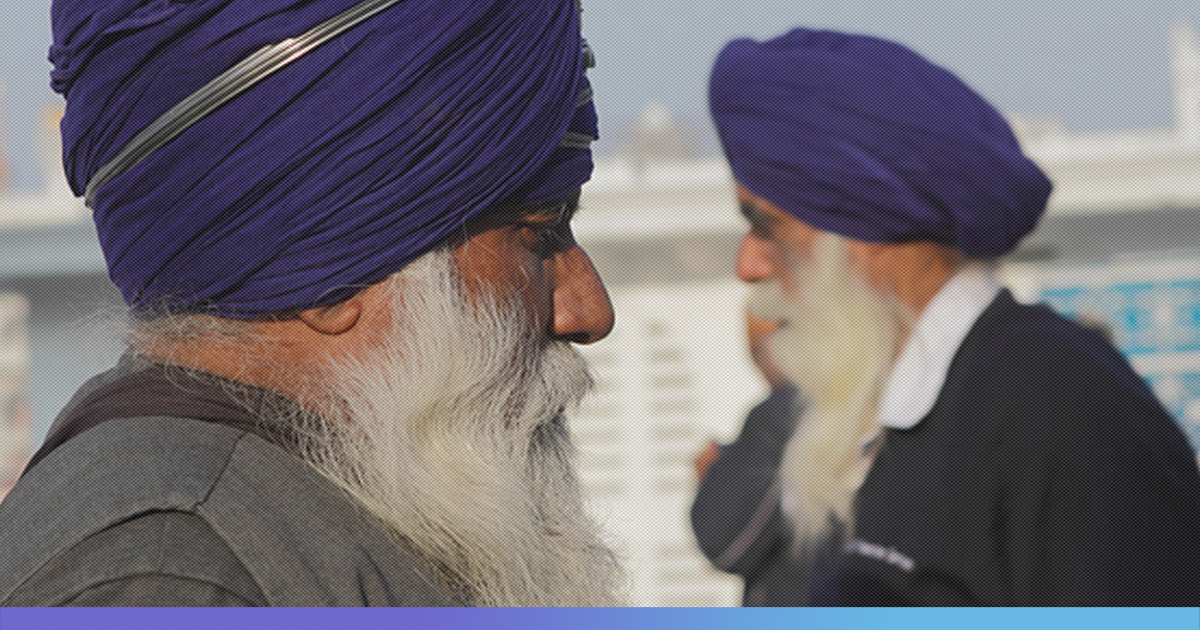
Crushed By Fear & Discrimination, Hundreds Of Sikh And Hindu Families Are Fleeing Afghanistan
29 Jun 2019 10:44 AM GMT
Editor : Sumanti Sen
Sumanti Sen is an English Literature graduate who believes "there's just one kind of folks. Folks.".
“I want to tear myself from this place, from this reality, rise up like a cloud and float away, melt into this humid summer night and dissolve somewhere far, over the hills. But I am here, my legs blocks of concrete, my lungs empty of air, my throat burning. There will be no floating away.”
Afghan-American author Khaled Hosseini painted a glaring picture of what Afghanistan was as a country to live in under the Taliban rule. However, even years after the Taliban government was driven out, nothing has changed. The country is still an abode of terror. No one is safe.
Sikh and Hindu families were once a thriving minority in Afghanistan. Blaming growing intolerance and discrimination, many have fled their motherland.
Chairman of the national council of Hindus and Sikhs, Avtar Singh, says that compared to around 220,000 members of the community that lived in Afghanistan before the collapse of the Kabul government in 1992, there are fewer than 220 families.
The community, which was once spread across the country, is now mainly concentrated in the eastern provinces of Nangarhar, Ghazni, and the capital Kabul.
Fear, Isolation And Discrimination
Afghanistan is almost entirely Muslim. However, its constitution, which was drawn up after the Taliban government was driven out in 2001 by US-led forces, theoretically guarantees the right of minority religions to be able to worship freely.
Avtar Singh, however, says that under the Taliban, conditions were worse. They imposed strict Islamic laws, staged public executions and deprived women and girls of their basic rights, including education.
“A society has no chance of success if its women are uneducated,” Afghan-American novelist Khaled Hosseini wrote in A Thousand Splendid Suns.
Under the Taliban rule, Hindus and Sikhs only had wear yellow patches that identified them in public. Otherwise, they were hardly ever bothered.
“Our lands have been taken by powerful figures in the government, especially by the warlords. We are facing threats, and this small community is getting smaller and smaller every day,” India Today quoted Avtar Singh as saying.
Neighbourhoods in Kabul have become densely populated over the years. New residents often oppose Sikh and Hindu cremations, which is a practice that Muslims, who bury their dead, are not familiar with. The smell of a body is burned makes the families feel sick, they say.
For their funerals, the community now requires police protection. According to the Sikhs, local Muslim hardliners have become extremely hostile against them.
However, Dahi-ul Haq Abid, deputy minister for Haj and religious affairs, said that the government has done their best for the well-being of the community.
“We agree that conflicts pushed them out of the country, but their condition is not as bad as they claim,” Abid said. “We have allocated them a place to burn their bodies because inside the city people complained about the smell, but they did not agree.”
Children of the community, too, complain of harassment in their schools by other kids.
An increasing number of Hindus and Sikhs have moved to India, which is their spiritual homeland. However, some say that no matter where they go, they remain foreigners.
“Kabul had become a city of ghosts for me. A city of harelipped ghosts,” Khaled Hosseini wrote.
Afghanistan Has Always Been War-Torn
When The Kite Runner’s Amir returns to Afghanistan years after he fled the country with his family, he comes back to a war-torn country with men, women and children, violated and mistreated, weeping at the corners of the streets, the snow-white expanses of which were smeared in blood.
Sikhs and Hindus may be the victims now, but Afghanistan has always been a war-torn country. Bombs and gunshots and weeping children are what paint the picture that Afghanistan is.
Amir’s experience of fleeing the country and coming back to it is exactly what Hosseini had gone through himself.
Talking about his return, Hosseini wrote, “When I went to Afghanistan in 2003, I walked into a war zone. Entire neighbourhoods had been demolished. There were an overwhelming number of widows and orphans and people who had been physically and emotionally damaged; every 10-year-old kid on the street knew how to dismantle a Kalashnikov in under a minute. I would flip through math textbooks intended for third grade, fourth grade, and they would include word problems such as, “If you have 100 grenades and 20 mujahideen, how many grenades per mujahideen do you get?” War has infiltrated every facet of life.”
Amir may only be a fictional character, but what he witnessed upon returning to his country is the actual ugly reality today, looking its residents straight in the eye. Under the Taliban or not, fear and intimidation rule the country’s people.
 All section
All section













